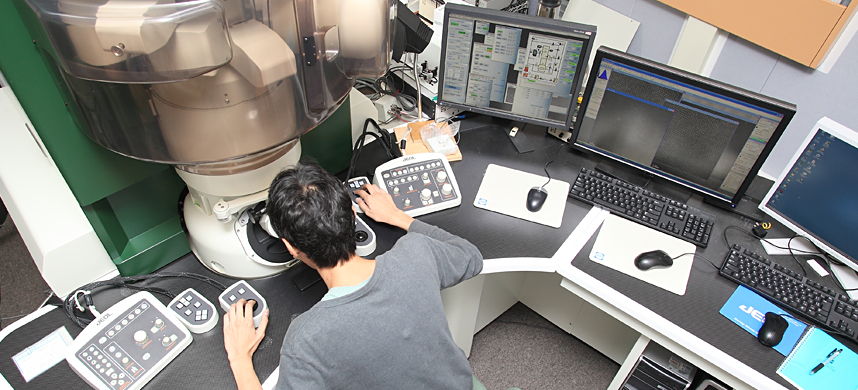As in the other departments of the Graduate School of Engineering, students devote the first two years to basic subjects such as mathematics, physics, chemistry, foreign language, and humanities. During the second year students take introductory courses in materials science and engineering. The third and fourth years are devoted to course work in materials science and engineering. The remainder of the basic subjects can be taken simultaneously. About 70% of the undergraduates elect to continue with the two year master's program in order to acquire more specialized training. Some students pursue a doctoral degree.
Undergraduate
Department of Materials Science and Engineering

PROGRAM OF STUDY
Students take physical chemistry for materials, materials electrochemistry, physics of materials, microstructure of materials, strength of materials, and mechanics of materials in the first semester of the second year; in the second semester, they take applied mathematics A, exercises in materials chemistry, mechanics of material systems, mechanics for materials processing, and mechanical engineering design. These classes constitute the basic disciplines of the three departments.
In the third year students take applied mathematics B, computer programming exercises, and engineering material design. Laboratory experiments are important components of the curriculum. Technical drawing is another component of the program. In March students may take field trips to several representative private plants and research laboratories.
During the second to fourth years, a certain number of classes are also required from among the following take field trips to several representative private plants and research laboratories.
During the second to fourth years, a certain number of classes are also required from among the following subjects: physics and chemistry of high temperature melts, transport phenomena, ferrous process metallurgy, introduction to biomaterials, chemical physics of materials, functional ceramics, structural materials, electronic materials, magnetic materials, atomistic materials science, welding engineering, cast and solidification processing, powder metallurgy science, deformation processing of materials, materials evaluation, chemical reaction engineering of materials process, computational chemistry for materials process, analytical science for materials research, solid state physics and engineering, applied surface science, functional polymers, microstructural design of materials, numerical analysis for working process, welding mechanics, intelligent materials engineering, applied mathematics C, introduction to mechanical engineering, introduction to electrical engineering, introduction to industrial chemistry, introduction of environmental engineering.
At the beginning of the fourth year, each student selects his or her major department and thesis supervisor and begins thesis research. In addition, students read critically published technical papers in seminars. Near the end of the fourth year students begin conducting experiments and writing the thesis.